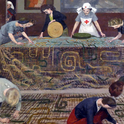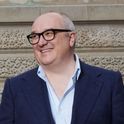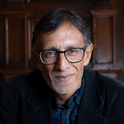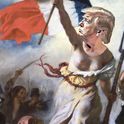Phillip Blond's cover story makes a good case for localism, but he seems to think his proposals require a rejection of liberalism, whereas in fact they are simply the natural outgrowth of liberal ideas. He is also grossly mistaken in some of the characteristics he attributes to liberalism.
In particular, he confuses liberalism with anarchism. Liberalism, he rightly says, emerged to resist the absolutism of monarchs, but he goes on to claim that the defence of individual liberty became so extreme that "each man was obliged to refuse the dictates of any other." As such, it required "the repudiation of society." The liberal idea of man, then, is an idea of "nothing," not even a nation. The inevitable result of this is the need to suppress perpetual conflict between self-interested individuals; so "the unanticipated bequest of an unlimited liberalism" was "the controlling state."
If true, this would indeed be tragic, but I can only surmise that Phillip Blond has not read the great liberal writers who, since the 17th century, have grappled with the very problem he discusses. Locke, perhaps the first modern liberal, begins with the problem of how to keep order in a society of individuals and groups intent on pushing their own agendas. His solution was to give the state a monopoly on the use of force but, crucially, the state's powers should be subject to the consent of the people. Locke did not think there was neither a society nor a nation. His ideas were designed for an independent community of people who wanted to avoid the chaos of a "state of nature"—by accepting one law for all and to abiding by the decisions of impartial judges. "Those who are united into one body, and have a common established law and judicature to appeal to, with the authority to decide controversies between them, and punish offenders, are in Civil Society one with another," Locke wrote in his Second Treatise of Government. To construe these words as implying a rejection of society is entirely irrational.
Blond could also glance at the words of the great Enlightenment philosopher Immanuel Kant. He warned that human inclinations made it impossible for people to coexist for long in a state of "wild freedom." And yet, the development of human abilities could only be achieved in a society with the greatest personal freedom and "therefore a continual antagonism among its members." The circle could be squared only by "the most precise specification and preservation of the limits of this freedom in order that it can co-exist with the freedom of others." Kant, therefore, agreed that selfishness could be a destructive force, but believed that such "wild freedom" could be contained by the "civil freedom" protected by a liberal constitution.
The ideas of Locke, Kant and many other thinkers had a decisive influence on the constitutional democracies of Europe and North America and, partly thanks to the power of their ideas, we in Britain still live in a liberal democracy today. Countervailing pressures for absolutism have never disappeared, but the extensions of state power that have occurred over the years not been the result of liberalism, as Blond argues, but a retreat from liberalism's ideal of limited government.
Blond's style of reasoning is part of a long tradition of writing that is hostile to modernity. It usually starts with the claim that we face a crisis and that there is a clear culprit: liberalism. In this case, the specific idea in the dock is "autonomy," which for liberals "must precede everything else." But the idea of self, says Blond, is a fiction. Real people "are formed by the society of others."
Yet everything that can be called "social" is not necessarily good. (The Ku Klux Klan, for example, was "formed by the society of others"). Like some earlier communitarian writers, Blond has smuggled in with the word "social" a measure of implied moral approval. It's a bit like saying we are "dental animals" while taking it for granted that "dental" only referred to shiny, white, perfect teeth.
We are indeed social animals, but this still leaves everything to fight for. Pioneering liberal thinkers knew only too well that we are "social" and so repeatedly, but they favoured a particular social form: liberal democracy. Liberalism has been and remains the political ideal of people who want a government based on the consent of the people being governed; that puts constitutional limits on the abuse of power; that frames policies in the open following public discussion; and whose duties are to represent the common good, as well as to facilitate individual liberty, uphold shared standards and give everyone the space to be themselves.
With this in mind, the localism Blond calls for does not entail a rejection of liberalism. On the contrary, liberal principles were devised to facilitate local initiatives. As long as we safeguard against local abuses of power, a new form of localism is a promising way forward.











